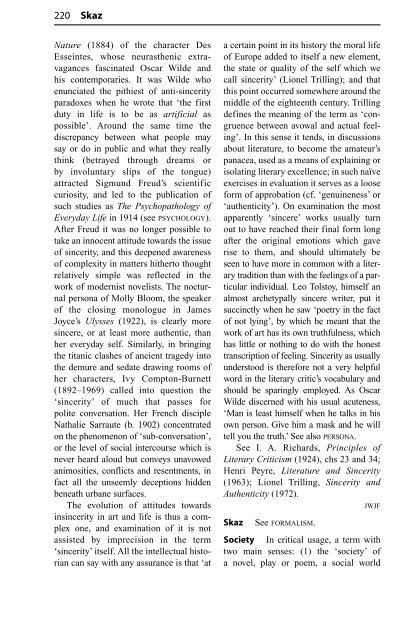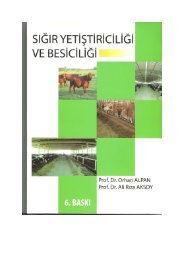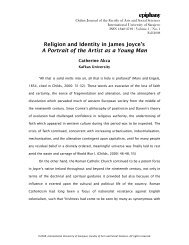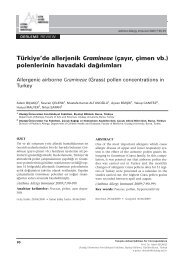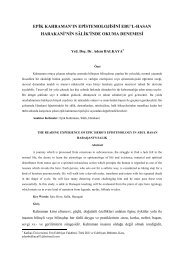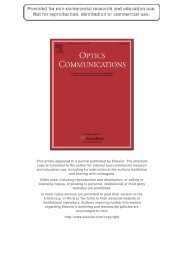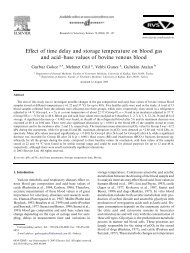The Routledge Dictionary of Literary Terms
The Routledge Dictionary of Literary Terms
The Routledge Dictionary of Literary Terms
Create successful ePaper yourself
Turn your PDF publications into a flip-book with our unique Google optimized e-Paper software.
220 Skaz<br />
Nature (1884) <strong>of</strong> the character Des<br />
Esseintes, whose neurasthenic extravagances<br />
fascinated Oscar Wilde and<br />
his contemporaries. It was Wilde who<br />
enunciated the pithiest <strong>of</strong> anti-sincerity<br />
paradoxes when he wrote that ‘the first<br />
duty in life is to be as artificial as<br />
possible’. Around the same time the<br />
discrepancy between what people may<br />
say or do in public and what they really<br />
think (betrayed through dreams or<br />
by involuntary slips <strong>of</strong> the tongue)<br />
attracted Sigmund Freud’s scientific<br />
curiosity, and led to the publication <strong>of</strong><br />
such studies as <strong>The</strong> Psychopathology <strong>of</strong><br />
Everyday Life in 1914 (see PSYCHOLOGY).<br />
After Freud it was no longer possible to<br />
take an innocent attitude towards the issue<br />
<strong>of</strong> sincerity, and this deepened awareness<br />
<strong>of</strong> complexity in matters hitherto thought<br />
relatively simple was reflected in the<br />
work <strong>of</strong> modernist novelists. <strong>The</strong> nocturnal<br />
persona <strong>of</strong> Molly Bloom, the speaker<br />
<strong>of</strong> the closing monologue in James<br />
Joyce’s Ulysses (1922), is clearly more<br />
sincere, or at least more authentic, than<br />
her everyday self. Similarly, in bringing<br />
the titanic clashes <strong>of</strong> ancient tragedy into<br />
the demure and sedate drawing rooms <strong>of</strong><br />
her characters, Ivy Compton-Burnett<br />
(1892–1969) called into question the<br />
‘sincerity’ <strong>of</strong> much that passes for<br />
polite conversation. Her French disciple<br />
Nathalie Sarraute (b. 1902) concentrated<br />
on the phenomenon <strong>of</strong> ‘sub-conversation’,<br />
or the level <strong>of</strong> social intercourse which is<br />
never heard aloud but conveys unavowed<br />
animosities, conflicts and resentments, in<br />
fact all the unseemly deceptions hidden<br />
beneath urbane surfaces.<br />
<strong>The</strong> evolution <strong>of</strong> attitudes towards<br />
insincerity in art and life is thus a complex<br />
one, and examination <strong>of</strong> it is not<br />
assisted by imprecision in the term<br />
‘sincerity’ itself. All the intellectual historian<br />
can say with any assurance is that ‘at<br />
a certain point in its history the moral life<br />
<strong>of</strong> Europe added to itself a new element,<br />
the state or quality <strong>of</strong> the self which we<br />
call sincerity’ (Lionel Trilling); and that<br />
this point occurred somewhere around the<br />
middle <strong>of</strong> the eighteenth century. Trilling<br />
defines the meaning <strong>of</strong> the term as ‘congruence<br />
between avowal and actual feeling’.<br />
In this sense it tends, in discussions<br />
about literature, to become the amateur’s<br />
panacea, used as a means <strong>of</strong> explaining or<br />
isolating literary excellence; in such naïve<br />
exercises in evaluation it serves as a loose<br />
form <strong>of</strong> approbation (cf. ‘genuineness’ or<br />
‘authenticity’). On examination the most<br />
apparently ‘sincere’ works usually turn<br />
out to have reached their final form long<br />
after the original emotions which gave<br />
rise to them, and should ultimately be<br />
seen to have more in common with a literary<br />
tradition than with the feelings <strong>of</strong> a particular<br />
individual. Leo Tolstoy, himself an<br />
almost archetypally sincere writer, put it<br />
succinctly when he saw ‘poetry in the fact<br />
<strong>of</strong> not lying’, by which he meant that the<br />
work <strong>of</strong> art has its own truthfulness, which<br />
has little or nothing to do with the honest<br />
transcription <strong>of</strong> feeling. Sincerity as usually<br />
understood is therefore not a very helpful<br />
word in the literary critic’s vocabulary and<br />
should be sparingly employed. As Oscar<br />
Wilde discerned with his usual acuteness,<br />
‘Man is least himself when he talks in his<br />
own person. Give him a mask and he will<br />
tell you the truth.’ See also PERSONA.<br />
See I. A. Richards, Principles <strong>of</strong><br />
<strong>Literary</strong> Criticism (1924), chs 23 and 34;<br />
Henri Peyre, Literature and Sincerity<br />
(1963); Lionel Trilling, Sincerity and<br />
Authenticity (1972).<br />
JWJF<br />
Skaz See FORMALISM.<br />
Society In critical usage, a term with<br />
two main senses: (1) the ‘society’ <strong>of</strong><br />
a novel, play or poem, a social world


